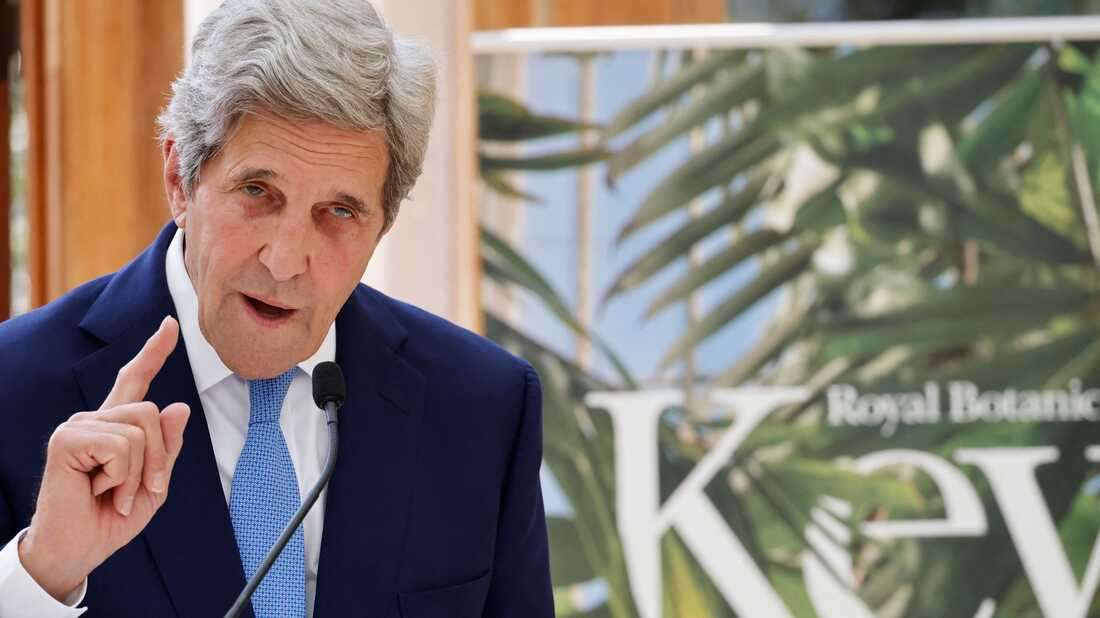
U.S. Special Envoy for Climate John Kerry gives a speech at the Royal Botanic Gardens, Kew, southwest London on July 20, 2021. Tolga Akmen/AFP via Getty Images hide caption

U.S. Special Envoy for Climate John Kerry gives a speech at the Royal Botanic Gardens, Kew, southwest London on July 20, 2021.
Tolga Akmen/AFP via Getty ImagesWhat struck John Kerry the most about this week's landmark U.N. report on climate change?
"The irreversibility" of some of the most catastrophic effects of global warming, he tells Audie Cornish. Kerry, the U.S. Special Envoy for Climate, tells NPR the U.N. report underscored the need for the world to respond more forcefully to climate change — and he's called an upcoming U.N. climate summit in Scotland the "last best hope" for global action.
At the same time, the Biden administration faces an uphill battle to take major action on climate at home. Hear more on that from the NPR Politics Podcast via Apple, Spotify, or Google.
Email us at
This episode was produced by Brent Baughman and Jonaki Mehta. It was edited by Rebecca Hersher, Deirdre Walsh, Patrick Jarenwattananon, and Fatma Tanis. Our executive producer is Cara Tallo.

 Live Radio
Live Radio